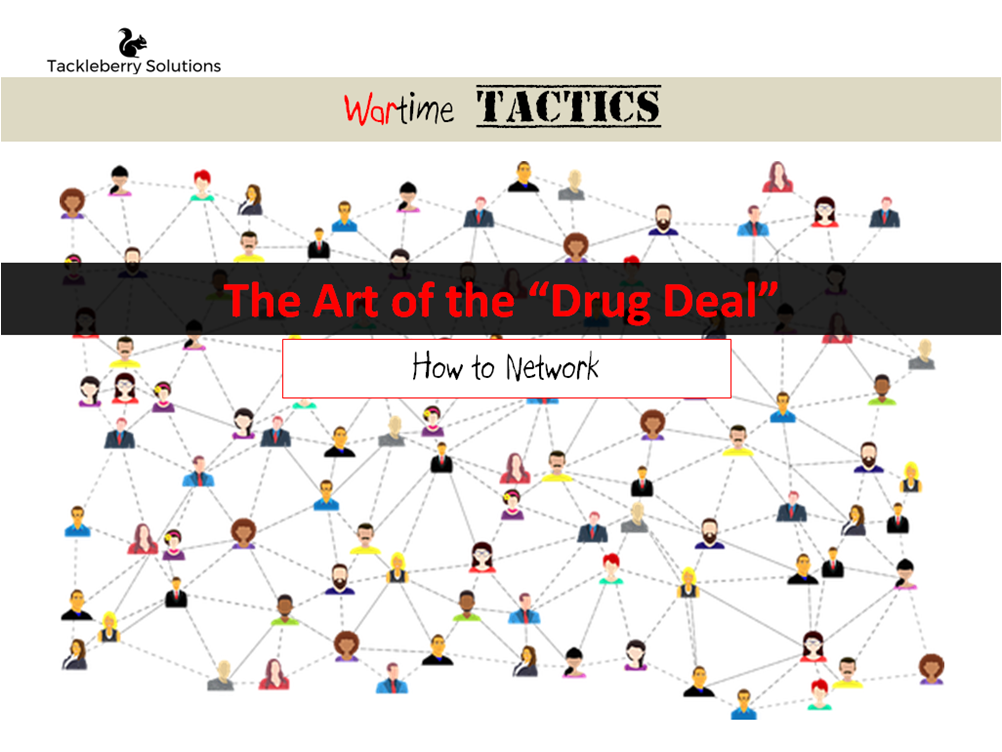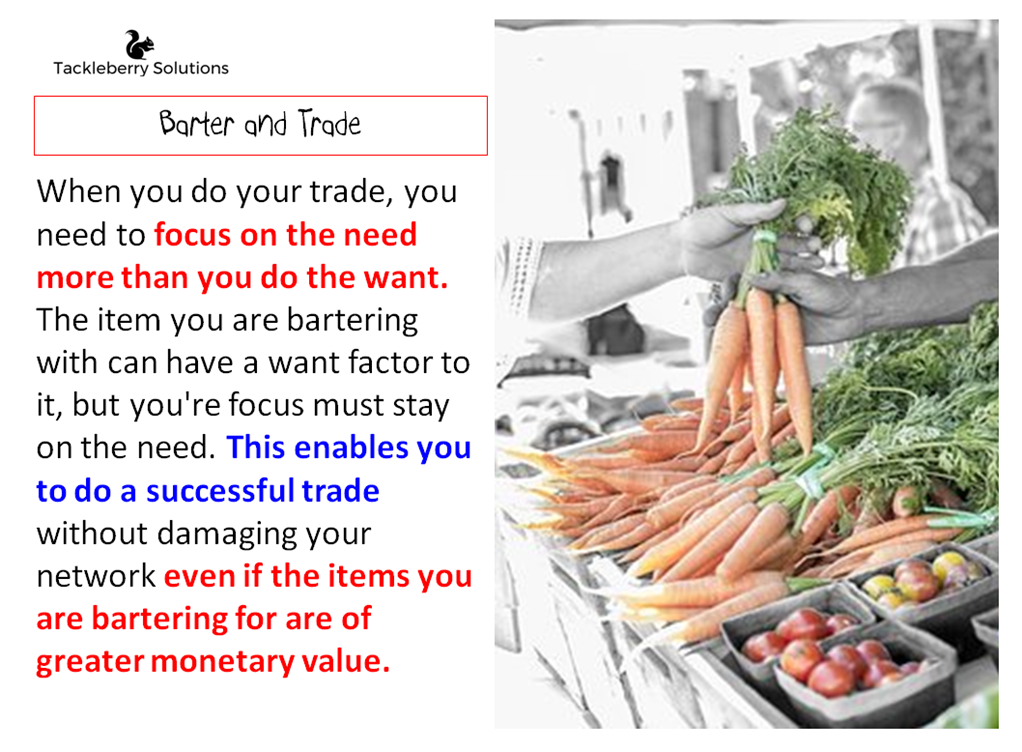
Wartime Tactics: How to use your Network to get supplies, obtain information and conduct missions behind enemy lines
Have you ever known that one guy who could acquire pretty much anything by networking? These guys are invaluable during a time of war. So if you don't know someone like this, then its time to learn how to be that guy.
Networking with your "Drug Dealer"
The term "Drug Dealer" inside the military is not someone who pushes narcotics. They're the guy to go to who can get pretty much anything using a simple barter and trade method. They're able to do this because they know tons of people.
A good drug dealer keeps tabs on who needs what and who has what simply by talking to people. They remember those needs and are always keeping their eye open for an opportunity to use that to everyone's advantage.
Note: The goal of the drug dealer isn't to screw people over. They build they're network by keeping people happy. No one will trade with someone who has a bad reputation.
Real Life Example of Networking
There was a guy in my own platoon at SMR that blew me away with his networking skills. The drug deal in this case was pure artwork. To make this story easier to tell, I'll call him Soldier A.
At the end of drill one weekend, Soldier A found 2 cases of left over MREs (which absolutely suck and are useless btw) and stowed them away. Nobody really cared or thought anything of it.
Networking Phase 1
Solder A knew that Solder B was a prepper and valued food storage. Soldier A also knew that Soldier B had an extra ACH (combat helmet) at home. So Soldier A offered to trade the 2 boxes of MREs (valued at $240) for Soldier B's extra ACH (valued at $500).
Even though the price value was significantly different, the MREs were more useful to Solder B than the helmet was. So he happily agreed to trade.
Side note: Need vs. Want
I want a million dollars but I can give you a laundry list of things that I WILL NOT do for that much money. However, when it comes down to a NEED, I may just have to pucker up.
The lesson here: need ALWAYS outweighs want.

Soldier A knew that Soldier B needed the MREs for his preps more than he needed that extra ACH. So even though the monetary value differed, his need factor was greater for the MREs than the ACH.
Networking Phase 2
Soldier A takes his newly acquired ACH and goes to another buddy of his who we'll call Soldier C.
Soldier C had just returned from a live mission and had just bought a new set of body armor. So he no longer needed nor wanted his old body armor.
Soldier C was also getting ready to ETS (Expiration of Term of Services = released from active duty) and was looking to join a militia. As a result, the body armor he was trying to put together didn't have to follow military guidelines. Therefore, he was looking for a high cut ACH.
So before Soldier A goes to Soldier B, he takes a skill saw and alters his newly acquired ACH to be a high cut. This cost him about 1 hour and $30.
Again, Soldier A was familiar with the needs and assets of those around him. He knew what Soldier C had and also what he needed. So he offers to trade his new, high cut ACH for Soldier C's old (but hardly used) body armor ($700 value).
Networking Phase 3
Soldier A then goes to Soldier D who is about to deploy and had just gotten issued a crappy IOTV (Improved Outer Tactical Vest).
Soldier A offers to trade his sweet body armor for Soldier D's ACOG (Advanced Combat Optical Gunsight which is valued at $1400).
Soldier D knows the monetary value of each item, but needs the body armor more than he needed the ACOG. Especially considering that he was going to get issued an ACOG for his deployment and that he'd also have the money to replace his personal one when he got back. As a result, he happily agrees to trade for the body armor.
Networking Phase 4
That's right guys, this soldier is still climbing the ladder with this one.
Now Soldier A has a $1400 ACOG that is less than a year old. So what does he do? He takes it to his local gun dealer where he has been eyeing this sweet pistol and offers to trade.
The gun dealer sees a $1400 ACOG that has never been used and is only a year old. While the pistol that Soldier A is wanting is only valued at $700. So he happily trades.
The Result
Soldier A took 2 boxes of free MREs and $30 dollars to get a new pistol. This was because he was good at the art of the "drug deal."
Now, what the heck does this have to do with you and the price of eggs in China?
Wartime Tactics: Using Your "Drug Dealer"
How fast do you think a drug dealer like Soldier A could acquire gear for you using his network?
I can't tell you the number of times that we've been down range and I've seen commanders, platoon sergeants, lieutenants and even captains go to the "drug dealer" and ask him to get them certain supplies. And these drug dealers were always able to do it.
Networking and Spies
Your drug dealer can use his network for more than just trading stuff.
Soldier A in the story knew something about each individual soldier and even a little bit about his local gun dealer. He knew what they had, their personality, and he knew what they NEEDED (and didn't need).
Soldier A acquired that pistol by trading in less than a week. A person like this would be of more value to you as a spy than a trigger puller. You could also use him and his network to conduct missions behind enemy lines (refer to video for examples) .

